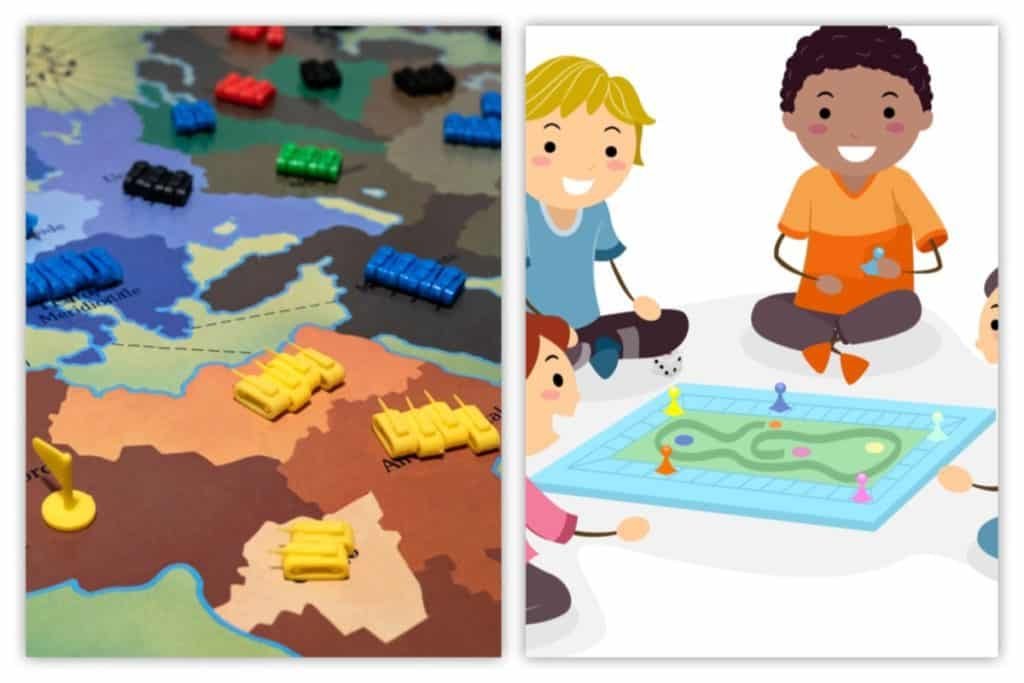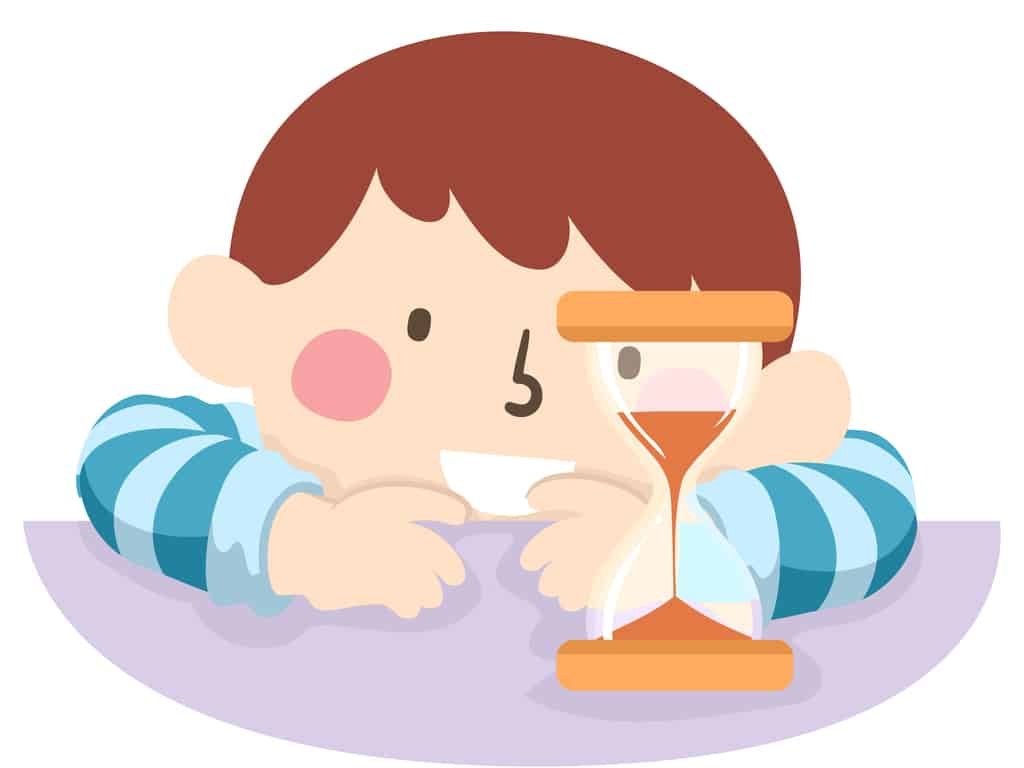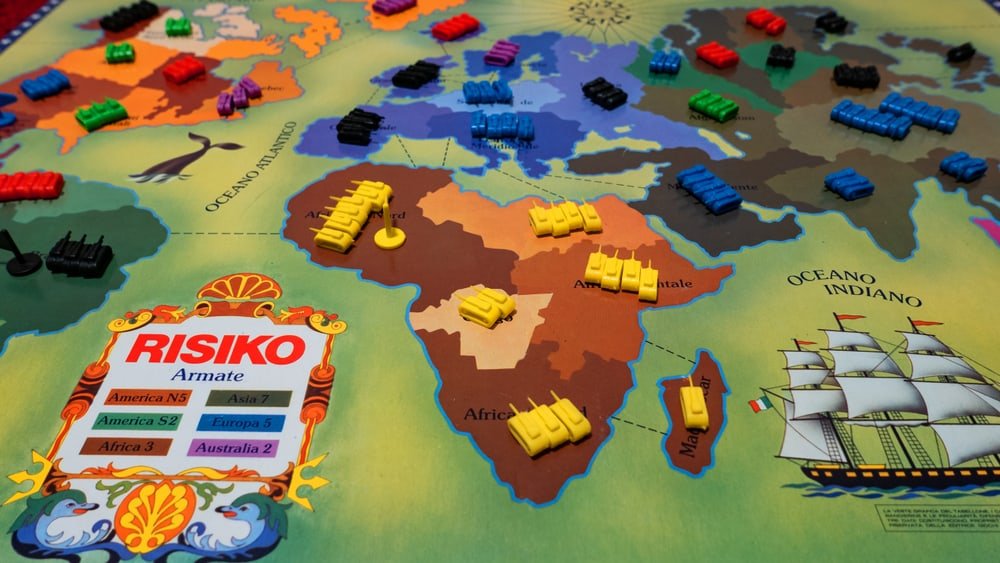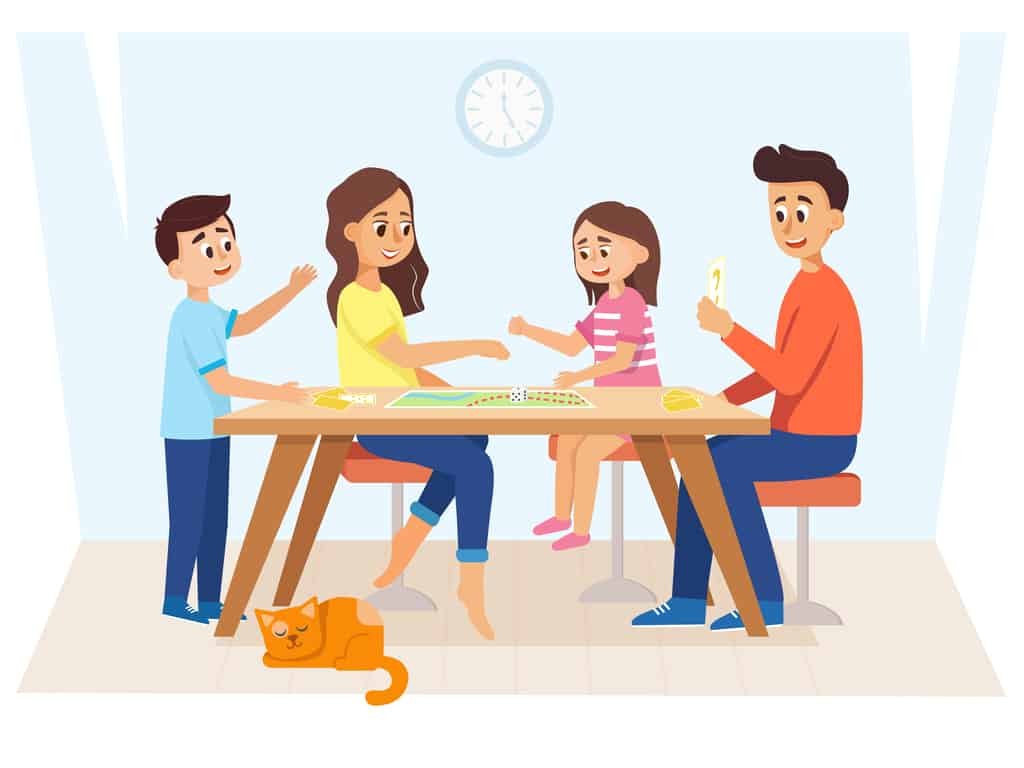Last Updated on January 7, 2024 by Gamesver Team and JC Franco

Playing board games with the kids comes with a whole host of benefits. When choosing a board game to play, you might wonder, which are the most appropriate for your child’s age group. As a young child, I remember having access to mainstream board games such as Monopoly, Chess, and Checkers, …but then, one day, my dad introduced us to Risk, and I was hooked.
I thought I would spend a bit of time discussing the reasons why Risk is a great board game to play with your kids. After all, I certainly benefited from exposure to the game. As an avid board game enthusiast, it is a no-brainer to me that Risk should be available to play in the average household. It is also quite convenient that there are so many versions of Risk available, which makes it easy to appeal to children of varying ages.
For those who are considering their options, you might want to learn about Risk and the benefits of playing it with your kids. If you want to learn more, simply read on. Below are the 11 reasons why I feel playing the Risk board game with your kids is beneficial.
11 ways kids can benefit from playing Risks with their parents:
1. Playing risk teaches patience.
Risk is not a quick and easy game, and that is the very reason why it is a good teacher of patience. It can take 2 hours or several days to complete a game. It really all depends on who is playing, how serious you are taking the game, and if you are just playing for fun or not.
In my home, the average Risk game would take all weekend, but there were nights where we would battle it out for a couple of hours and be done. As the games can be lengthy and nothing happens fast, it is a great way to teach children patience, especially considering that we live in a world where instant gratification seems the norm.

Risk takes time, as well as plenty of forethought and planning to win. Kids must learn to put their urge to win and conquer aside, and learn to slowly and methodically work through things. As mentioned; Risk is a great patience developer!
2. Risk teaches the reality of actions and consequences.
When taking action on the Risk board, there is always a consequence. Perhaps your action leads to taking over a territory, or perhaps your actions are rash and not well thought through, and they lead to you losing a territory. Either way, when experiencing this, kids will learn that no action comes without a consequence, and that gets them to start thinking before they take action. It is a great lesson for kids of all ages.
3. Kids learn to be good sports when they play Risk.
It can be frustrating to fall behind and watch the others tear ahead on the Risk board. This can lead to tantrums, sadness, or even kids who give up on the game. It is a good idea to encourage kids who are not winning to keep pressing on.
Being a good sport and trying to have fun even if they are not winning is a valuable life lesson and one they should learn early on. Not everyone can win in life, and it is good to show support and celebrate in other people’s victories. Risk is great for teaching these lessons.
4. Risk teaches children to think strategically.

Risk is all about strategy (and some luck). If you are unable to think strategically, you will not get anywhere in a game of Risk. The more children are exposed to Risk and the type of thinking required for winning, the more strategically they will begin to think. Of course, your child might need some help, as well as prompting with this type of thinking in the beginning.
If you are exposing kids to the game for the first time, perhaps it is a good idea for each child to play with an adult on their side, so that they can be shown how to think strategically and how to put those strategic thoughts into action.
5. Provides an opportunity for kids to learn how to control their emotions (frustration).
In general, children do not naturally have the ability and skills to control their emotions. It is why kids have tantrums and outbursts. They need to learn the skills to feel their emotions, get control of them, and then take appropriate action that is not spiteful or fuelled by emotions.
Risk, like many other board games, is a game that requires kids to learn self-control and to communicate decently with each other, regardless of how they are feeling. After some time, kids learn to deal with frustration – and that is a great lesson to learn and skill to have.
6. Kids that play Risk learn to think ahead.
When playing Risk, to perform at your best, you have to be 100% present and thinking one step ahead all the time. You need to be calculating and assuming to the point of knowing what your next step will be in a variety of possible scenarios. While kids probably do not start out thinking ahead, as they set their sights on territories they want, they will begin to learn to.
7. Risk is intense enough to draw kids away from their devices and screens.

Nowadays, it is hard to find games that are engaging enough to draw children away from devices. Risk is a game that perfectly balances fun with intense thinking. Once a child is hooked on Risk, you might find it hard to drag him/her away from the board! That is great if you are trying to find ways to drag your child away from the mobile phone or TV and get them interacting on a more face-to-face basis.
8. Playing Risk teaches children how to play fair (taking turns).
Playing Risk requires children to take turns and be patient while other players take their turn. If you are struggling to teach your child to play fair or if you have noticed that your child is not fair when playing with other kids, you can encourage fair play by supervising games of Risk and reinforcing the importance of turn-taking.
9. Risk encourages healthy competitiveness.
It is important for children to have a healthy amount of competitiveness within them. Sometimes, in today’s world, it seems easy for children to be overly competitive and prove themselves. Risk provides a good opportunity to teach children that being quietly strategic can win over competitive and pushy behavior.
10. Playing Risk teaches kids to keep their cool.
It is no secret that board games can cause people to experience such hot-headedness that they flip the board over or lash out at family members. You can use a game like Risk (which has the potential to be frustrating) to teach children how to better handle their emotions and their possible outbursts. By supervising the game, you can teach your child how to handle those emotions through calming techniques, breathing, creating new perspectives, and so on.
11. Risk provides a fun way for parents and kids to bond.
It is hard nowadays for kids and parents to bond. Lives are busy with school and work, and then weekends are jam-packed with chores and homework. Often, it is also hard to find an activity that interests both kids and parents. Risk is a game that is designed to interest both young and old.

Risk, as with many other board games, is a great way to get parents and children to bond as the game can be entertaining for different types of audiences. Setting weekly board games night is a great way to introduce bonding opportunities to the family.
Last Word
To play Risk or not to play Risk, that is the question! If I had to cast a vote, I would say “yes” to playing Risk as a family. Risk is a game that is fun, educational, and also great for boosting mental activity.
If you have been looking for reasons to play Risk with your kids, there they are…all 11 of them! Playing Risk with the kids is an excellent idea and one that you will not regret. Haul out the old Risk board or buy a new one, gather the kids, and start playing. Enjoy!

